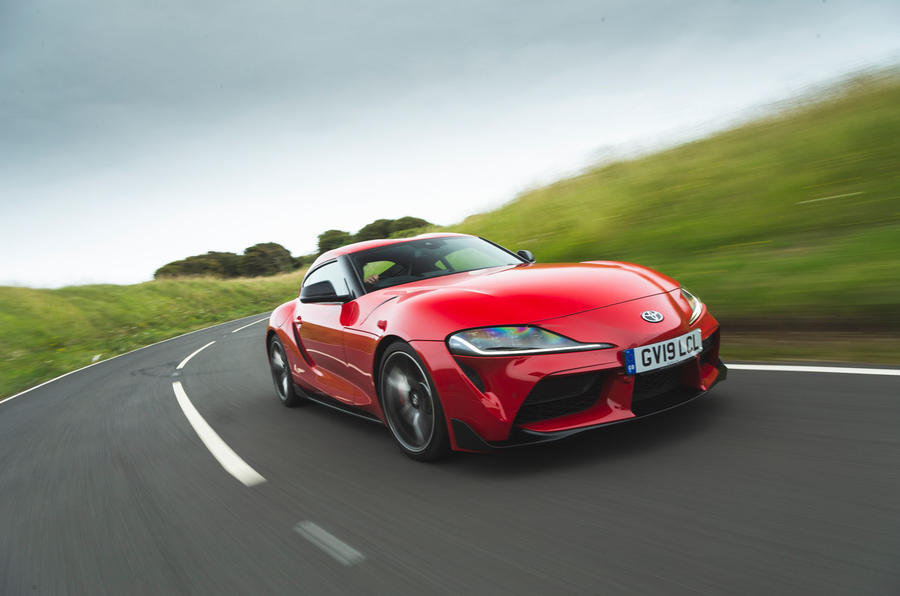Toyota's GR performance division plans to use hydrogen to keep its combustion-engined sports cars on the road – but infrastructure shortcomings prevent it from being an immediate solution.
The GR division, which has its roots in Toyota's Gazoo Racing motorsport operation, currently sells four cars: the GR Supra, the GR86, the GR Yaris, and, in the US, the GR Corolla, each of which is powered by a petrol engine.
Toyota recently revealed the FT-Se concept as a preview of GR's first EV and has detailed a number of initiatives on which it's working to ensure that electric sports cars are suitably engaging. However, it hasn't put a timeframe on their arrival and has voiced no plans to phase out its petrol cars.
Now GR manager Masahito Watanabe has said that all-out electrification isn't a priority for the sub-brand, pointing to Toyota's highly publicised efforts in recent years to develop hydrogen-combustion technology as a potential lifeline for its piston engines.

"We still think the internal combustion engine has some potential and, as we do so, we will of course be trying to comply with all the applicable rules according to the regions in each country," he said.
"But we don't want to give up. It's not over just yet, because if you look at the internal combustion engine, there's still hydrogen combustion that can be a part of that zero-emission line-up, so I think that's going to continue.
"As you see in the [FT-Se], we still see high possibility for battery EVs, but what we want to do is pursue the multi-pathway [approach] that we've been seeing in motorsports and sports cars in general."
Toyota’s multi-pathway approach manifests in a product plan that includes 15 battery electric cars by 2026 but still leans heavily on hybrid technology in a bid to provide maximum choice for consumers.
It also remains committed to hydrogen fuel cell technology, although is shifting its FCEV focus from passenger cars to heavy goods vehicles, as well as ships and power storage.






Join the debate
Add your comment
I think the thing that made Tesla a success, were the charging stations Tesla built. People felt happy to buy one knowing they could refuel. If Toyota want Hydrogen to be a sucess they should build the filling stations. I would be very happy with a Toyota sports car with pistons and a manual box no matter if it were petrol or hydrogen, but i would have to know i could refuel it, and i doubt there will be a local place to buy hydrogen any time soon, unless Toyota build one
All of this to avoid using E100 from a regular fuel pump, like they've been doing in Brazil since the 1970s?
Biofuel *can* be obtained as a byproduct from various industries without much of a footprint, but not in sufficient volume to make a serious dent in the total vehicle fleet. Bulk biofuel ultimately means bulk crop harvesting. In addition to the environmental problem, it's also been linked with famine in some regions, as it's more profitable for farmers to grow biofuel feedstock on their land than food.